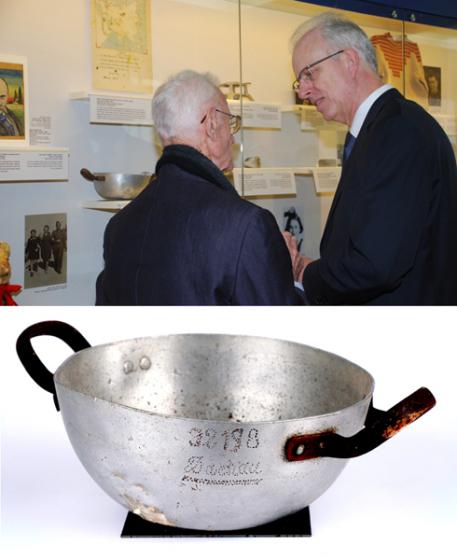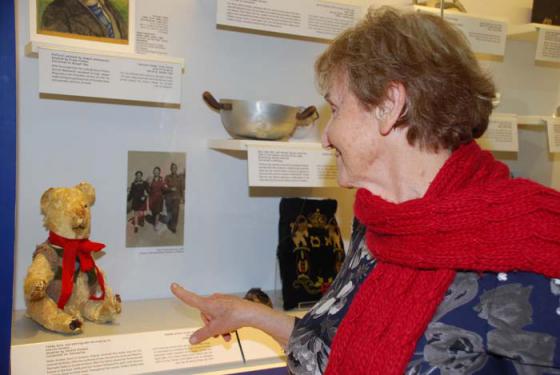
With the outbreak of war, Stella Knobel's parents Anna & Marton fled with her to Soviet territory. After her father joined the Polish Armed Forces in the East, Stella and her mother followed the path of the troops until Teheran and from there to Eretz Israel. Her Teddy bear was her constant companion – like a brother.
"He was like family. He was all I had. He knew all my secrets," the 80-year-old said with a smile, "I saved him all these years, but I worried what would happen to him when I died. We've been through a lot together, so it was hard to let him go, but here he has found a haven."

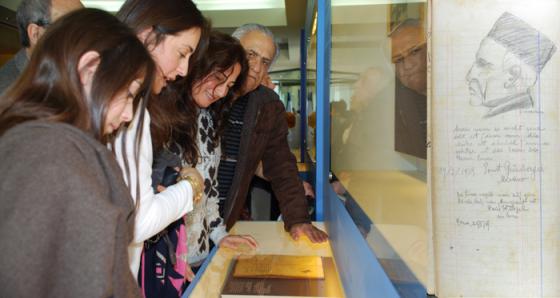
The book includes inscriptions from 1937-1941. Ariel Shalom had found it in a garbage container in Tel Aviv, he donated it to Yad Vashem at a collection day in Tel Aviv. Discover how the book had been lost, how it was reunited with the Pines family and learn about the unique institution of the Pensione Pines in Rome.

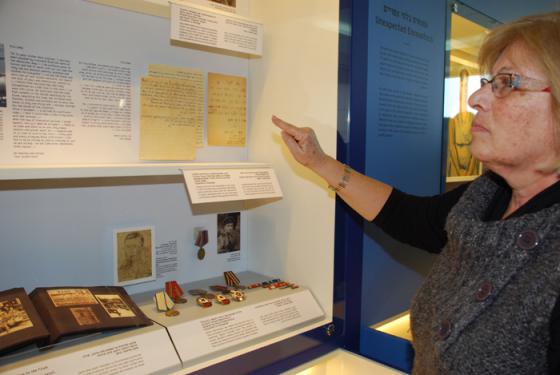
Yitzhak Tunik immigrated to Eretz Israel in 1934. For seven years, until 1941, there was intense correspondence between Yitzchak in Eretz Israel and his family in Stolpce. Read about life in Stolpce and follow the deteriorating situation through the family's moving correspondence.

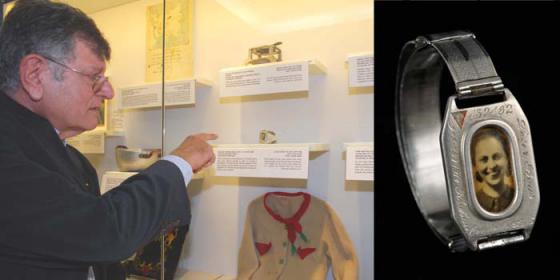
Boas Leser crafted the bracelet and inserted a photograph of his fiancée Lola Gebirtig. The couple were engaged to be married before the war. In 1942 Lola was deported to Stutthof camp and from there was sent to Auschwitz where she was murdered.
Lola was the daughter of the composer Mordecai Gebirtig. One of his songs 'Es Brent', written before the Holocaust, became a prophetic song about the destruction of European Jewry and was frequently sung during the Holocaust.
The bracelet was donated to Yad Vashem by Batya Chayko at a collection day in Netanya.

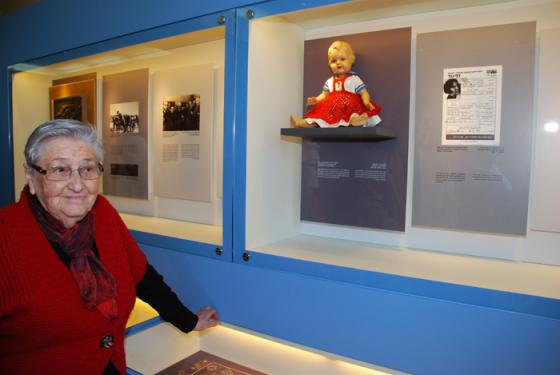
Tzvia Shkolnik met Edit Faber in the 1960’s when Edit worked as a cosmetician in Beer Sheva. When Edit passed away her belongings were left with Tzvia, among them her doll and a photograph album. Tzvia knew only that the doll was hidden with Edit during the war.
Edit Faber and her father Oskar were saved by Righteous Among the Nations Count Istvan Gyulai. Count Istvan Gyulai hid them in the cellar of his castle in Czechoslovakia even though the Nazis in Slovakia had taken over parts of the castle and set up Gestapo headquarters on the premises.

